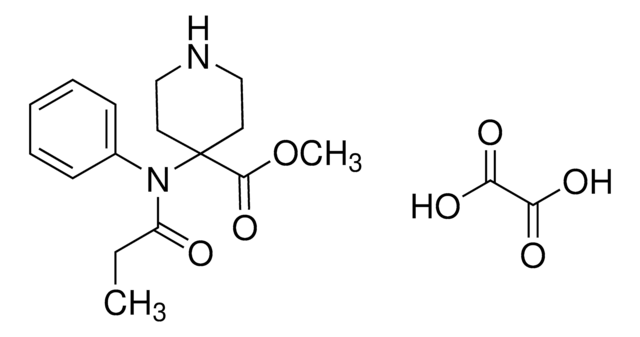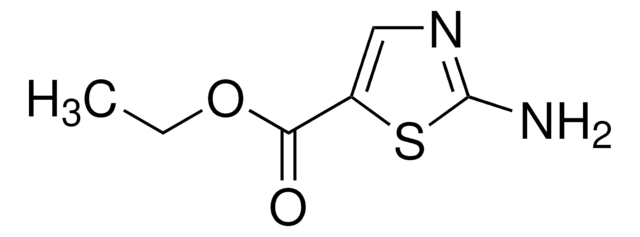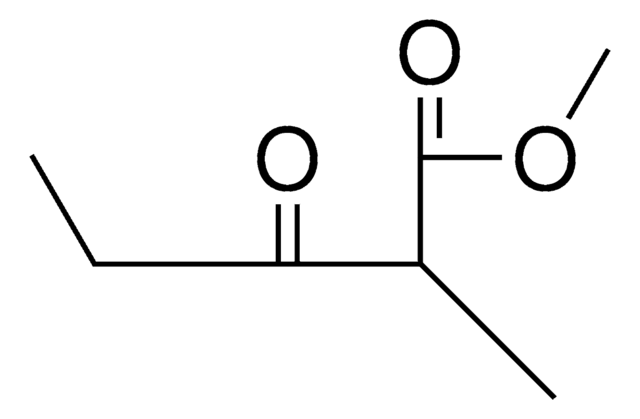About This Item
Fórmula linear:
(CH3)2C6H3OCH3
Número CAS:
Peso molecular:
136.19
Número CE:
Número MDL:
Código UNSPSC:
12352100
ID de substância PubChem:
NACRES:
NA.22
Produtos recomendados
Nível de qualidade
Ensaio
99%
forma
liquid
índice de refração
n20/D 1.514 (lit.)
pb
190 °C (lit.)
densidade
0.965 g/mL at 25 °C (lit.)
cadeia de caracteres SMILES
COc1cc(C)ccc1C
InChI
1S/C9H12O/c1-7-4-5-8(2)9(6-7)10-3/h4-6H,1-3H3
chave InChI
SJZAUIVYZWPNAS-UHFFFAOYSA-N
Categorias relacionadas
Descrição geral
2,5-Dimethylanisole acts as photoexcited donor and undergoes different non-radiative transitions in the presence of the acceptor 2-nitrofluorene in ethanol rigid glassy matrix at 77K.
Aplicação
2,5-Dimethylanisole was used to investigate the temperature dependence of spin-rotational relaxation rate of methyl C-13 in 2, 5-dimethylaniline.
Código de classe de armazenamento
10 - Combustible liquids
Classe de risco de água (WGK)
WGK 3
Certificados de análise (COA)
Busque Certificados de análise (COA) digitando o Número do Lote do produto. Os números de lote e remessa podem ser encontrados no rótulo de um produto após a palavra “Lot” ou “Batch”.
Já possui este produto?
Encontre a documentação dos produtos que você adquiriu recentemente na biblioteca de documentos.
C13 NMR Relaxation study of Internal Rotation of Methyl Groups-Spin-Rotational Relaxation of Methyl Carbon-13 in 2-bromo-p-xylene, 2, 5-dimethylanisole and 2, 5-dimethylaniline.
Lee JW, et al.
Bull. Korean Chem. Soc., 8(2), 73-79 (1987)
Investigations on the nature of non-radiative transitions from excited singlet and triplet states of dimethyl substituted phenols in the presence of acceptor 2-nitrofluorene at 77K.
Sinha S and Ganguly T.
Journal of Photochemistry and Photobiology A: Chemistry, 117(2), 83-90 (1998)
Ya-Nan Zhang et al.
Journal of hazardous materials, 358, 216-221 (2018-07-11)
Pharmaceuticals are a group of ubiquitous emerging pollutants, many of which have been shown to undergo efficient photolysis in the environment. Photochemically produced reactive intermediates (PPRIs) sensitized by the pharmaceuticals in sunlit natural waters may induce photodegradation of coexisting compounds.
Manabu Nakazono et al.
Clinica chimica acta; international journal of clinical chemistry, 436, 27-34 (2014-05-13)
Various styrylbenzene compounds were synthesized and evaluated as mainly Aβ amyloid sensors. These compounds, however, cannot be used for detecting amyloid deposition in peripheral nerves because of the inherent sensitivity of the compounds. These compounds often generate false positives especially
Nossa equipe de cientistas tem experiência em todas as áreas de pesquisa, incluindo Life Sciences, ciência de materiais, síntese química, cromatografia, química analítica e muitas outras.
Entre em contato com a assistência técnica






